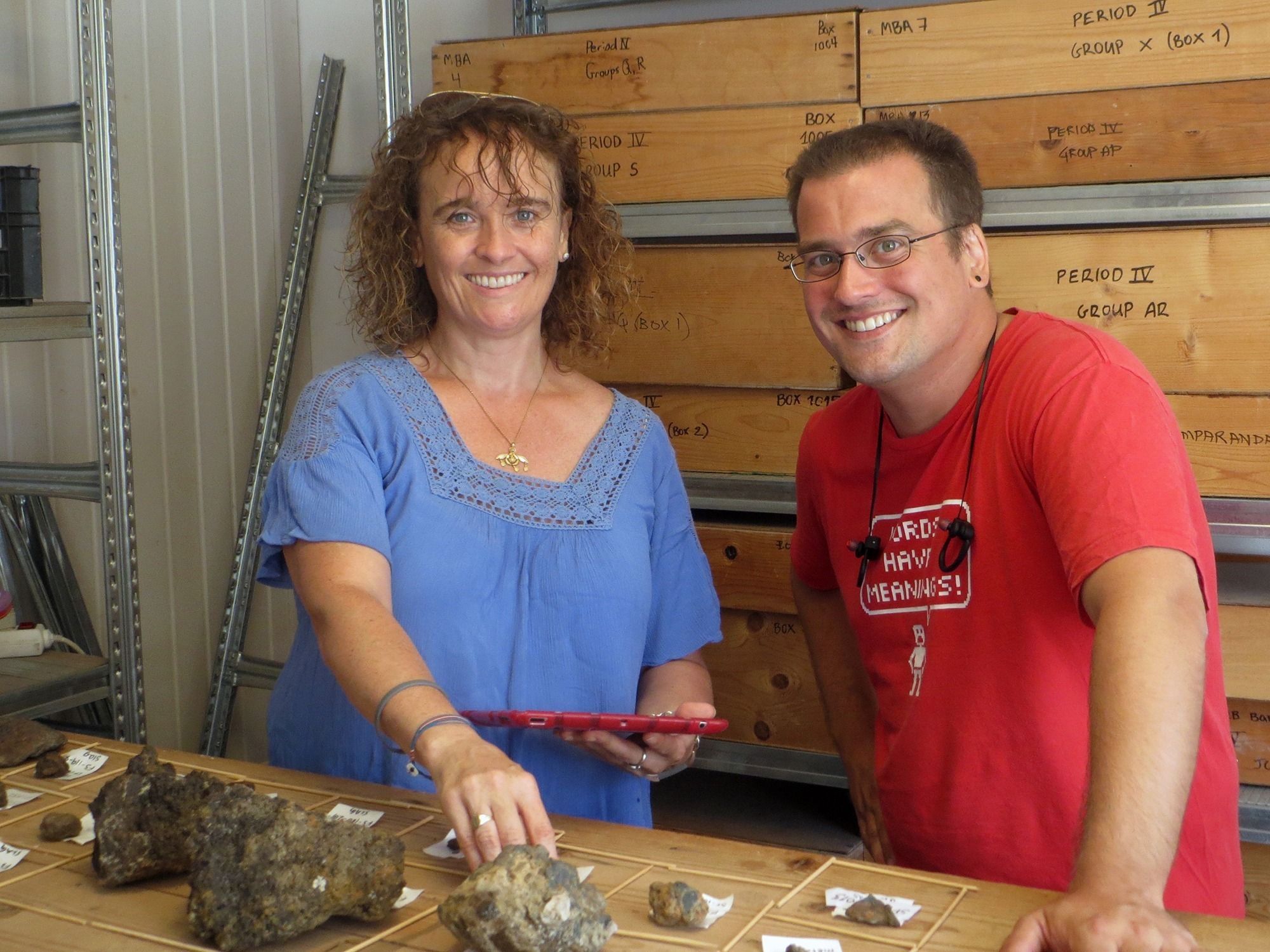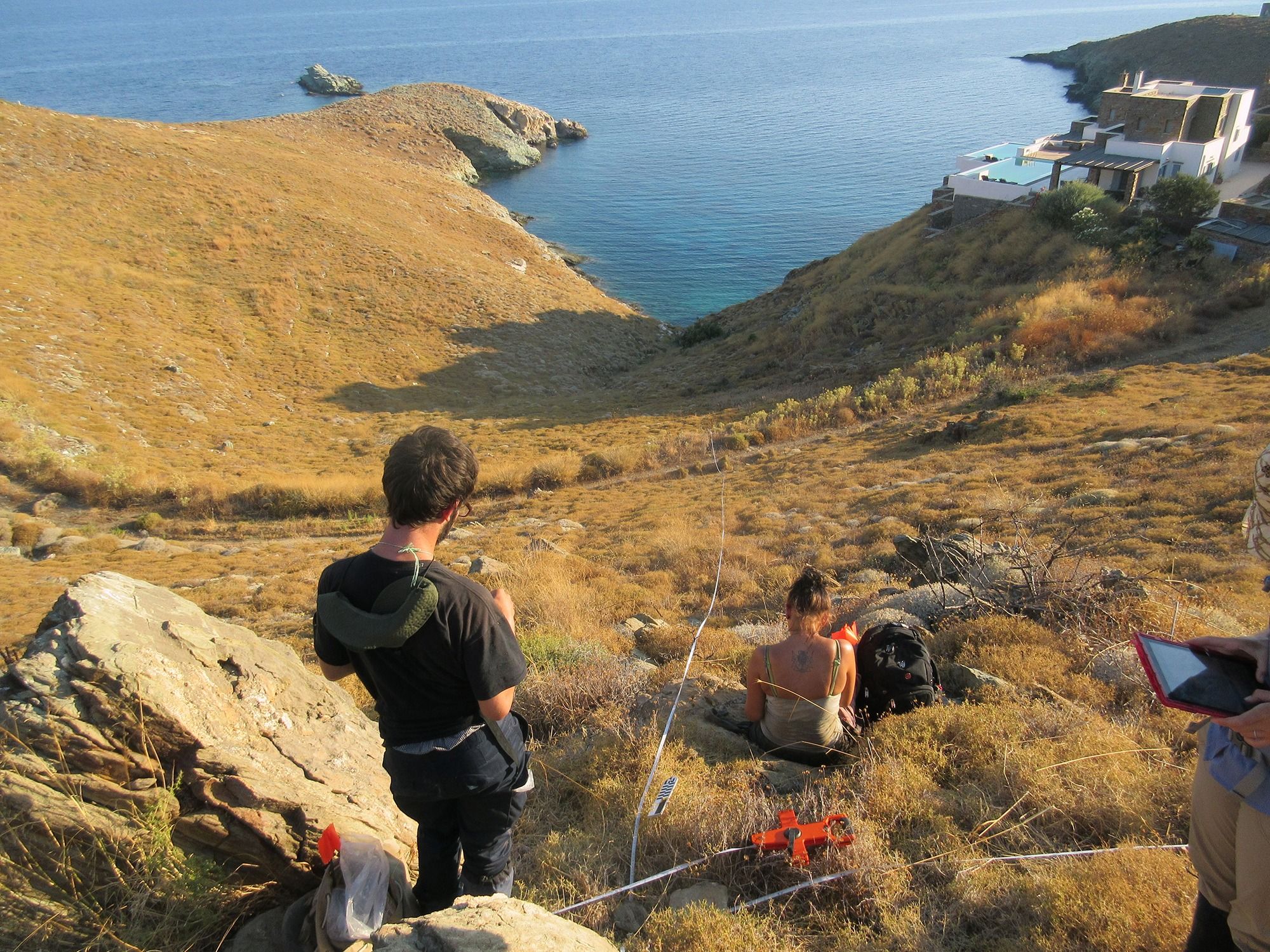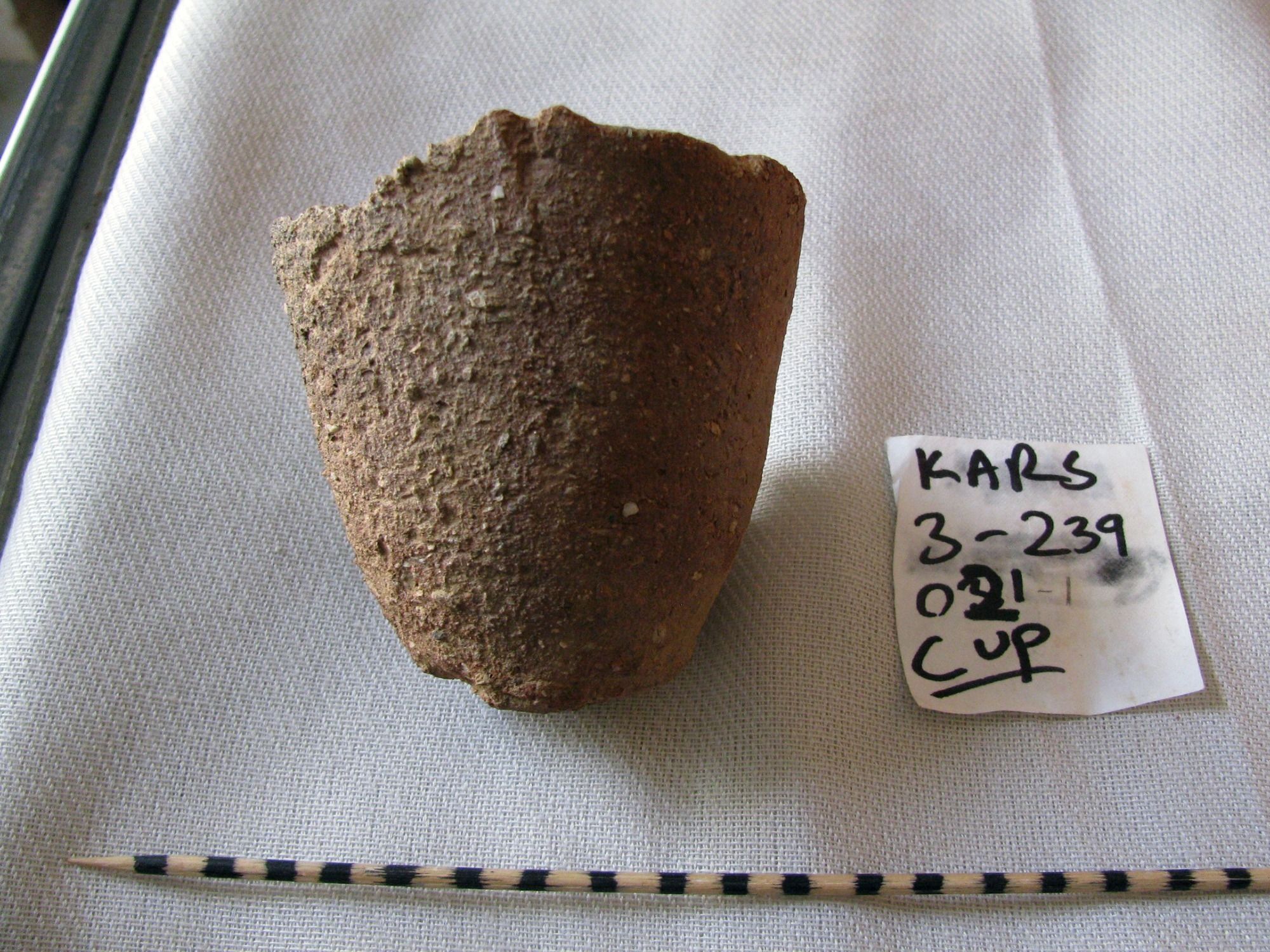We interviewed Dr. Joanne Murphy, who received the 2019-20 Junior Research Excellence Award for her groundbreaking scholarship on ritual and death during the Greek Bronze Age.
The Classical studies professor is internationally known for her methodological rigor and interdisciplinary approach to archaeology, and for overturning entrenched narratives in her field. Murphy has edited five books, with prestigious publishers such as Oxford University Press and Routledge, and has over 30 peer-reviewed publications and a monograph.
Closer to home, she is distinguished for her efforts to support regional humanities research and has received her college’s teaching award and UNCG’s undergraduate research mentor and service and leadership awards.
All Greek to me
“In Ireland, where I grew up, our myths and legends always had heroes coming back from Greece with mystical, profound knowledge. So, Greece was this exotic, romantic location to me. In college I majored in Greek and Roman Studies, an amazingly deep and broad subject. You do history, philosophy, literature, art, all these things in the one discipline, and that’s how I found archaeology. The fact that you can touch things that a human made several thousand years ago, the connection with this ancient humanity – even now it blows my mind.”
Ritual pays
“Solon, an Athenian statesman, said, if you want to know whether you’ve lived a good life, you need to die. That’s how it is where I grew up: who turns up to your funeral is really important. It’s fascinating to me how the living use death to assert identity. That’s how I got into rituals. In archaeology, rituals are repeated actions and artifacts found in comparable spaces. When we find evidence of ritual, I look at sociopolitical impact. What service is this doing? Why are people investing in this?”
Same, same but different
“My major field work is from Pylos, a Bronze Age palace. Tombs there span the rise and fall of the palace, and you can see how the dead were treated differently over time. Pylians initially used tombs to compete for status. As in 19th-century America and England, the wealthier a family was, the bigger the tomb. But once hierarchy was firmly established, people at Pylos shifted their investments to other areas.
“My findings are different from what you see at Mycenae, the most famous Greek Bronze Age palace. There, people continued to invest huge amounts of money into the dead – it didn’t taper off.
“Greek archaeologists historically thought what they found at Mycenae would be everywhere. But that’s like saying everything that happens in New York City will happen in Greensboro, because they’re both cities. The rituals at the two sites are different, reflecting their different sociopolitical and economic histories.”
Greek Bronze Age Goes Global
“Two of my recent books, ‘Ritual in Archaic States’ and ‘Ritual in Collapsing States,’ share studies from all over the world that focus on a central theme.
“A common idea is that people panic and invest more in religious ritual when they are under threat. We show that’s not a universal truth. In some collapsing societies in ancient Greece, for example, we found investment in big feasts instead – they were prioritizing their networks, their connections to the outside world.
“Greece is a highly developed, distinct subfield in archaeology and rarely included in discussions comparing cultures. But these books are being referenced in work coming out of the Andes, Mexico, and Myanmar. It’s exciting to bring Greek archaeology into global anthropological discussions.”
Since 2009, Dr. Joanne Murphy has guided UNCG students through six-week professional internships at an archaeological field school on the Greek island of Kea. See more photos on UNCG Research Flickr.
Methods matter
“Archaeology is inherently an interdisciplinary science – for a regular project I need pottery specialists, metallurgists, and chemists. But to answer nuanced questions, you need more. In one study of glass beads from Pylos’ tombs, I worked with a chemical engineer and nuclear physicist. By identifying the beads’ elemental makeup, we could see Pylians were importing glass from Egypt and Mesopotamia much earlier than previously thought.
“Over the last decade I’ve led an archaeological survey and field school on the Greek island of Kea. Loads of archaeologists do surveys but nobody has gone back and tested survey data. We’re comparing our survey to one from the 1980s. Are more things hidden or exposed? Do the differences change our view of the past? It’s part of the larger scientific reproducibility debate.”
Students on site
“Around 90 students have gone through the field school, and I also mentor undergraduate researchers at UNCG. Undergraduate research is a total game changer. Students learn how to argue, to defend their positions, and they develop identities as scholars. The experience allows them to find their own gifts and strengths and positions them for postgraduate success.
“They get to know their own curiosity and passion, which is what drives research. We call it research, because we have posh words for things, but it’s curiosity and passion.”


